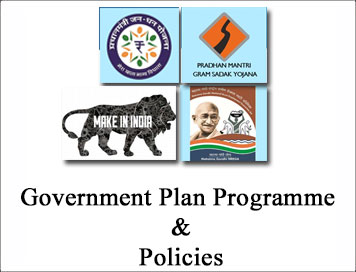Government Plan Programme Policies for UPSC Exam: Jan Aushadhi Yojana

Government Plan Programme Policies for UPSC Exam
:: Jan Aushadhi Yojana ::
India face problems related to Infant mortality and Maternal mortality at a large scale. India also receives highest number of deaths in many acute diseases. There are various reasons for these problems but most important among them is that in India expenditure on health in very less percentage of the GDP. While in USA it is close to 14 percent in India it is close to five percent. Among this percentage government spending of health is close to one percentage only. This puts an added burden on the public to spent from their pocket. And in a country where large section of population is poor this burden is unsustainable. In last few decades economic growth of India has been very good but resultant public spending on the health sector has not improved much. The growth of India’s economy now permits this long overdue increase in public financing of health. Good health has implications for development of countryas well.
The Government has launched ‘Jan Aushadhi Scheme’ to make available quality generic medicines at affordable prices to all, especially the poor, throughout the country, through outlets known as Jan Aushadhi Stores (JASs). Under the Jan Aushadhi Scheme, the State Governments are required to provide space in Government Hospital premises or any other suitable locations for the running of the Jan Aushadhi Stores (JAS). Bureau of Pharma PSUs of India (BPPI) is to provide one-time assistance of Rs.2.50 lakhs as furnishing and establishment costs, start up cost for setting up a Jan Aushadhi Outlet. Any NGO/Charitable Society/Institution/Self Help Group with experience of minimum 3 years of successful operation in welfare activities, can also open the Jan Aushadhi store outside the hospital premises. A margin of 16% on the sale price is built in the MRP of each drug.
In addition, the JAS are eligible for incentive linked to sale of medicines @ 10% of monthly sales amount, subject to a ceiling of Rs.10,000/- pm for a period of first 12 months. In case of Stores opened in North Eastern States and other difficult areas i.e., Naxal affected areas/Tribal areas etc., the rate of incentive is15% of monthly sale amount, subject to a ceiling of Rs.15,000/- per month. At present more than 175 Jan Aushadhi Stores have been opened across various States/UTs. JAS are opened on the locations as requested by the entity intending to open. The steps are also taken to open Jan Aushadhi stores in all AIIMS, prominent Hospitals, Medical Colleges under the Ministry of Health & Family Welfare.
The Public Health Foundation of India (PHFI) was asked to study the Scheme and suggest remedial measures. PHFI in their report pointed out the following factors which were mainly responsible for the scheme not being successful:
(i) Over dependence on support from State Government.
(ii) Poor Supply Chain management.
(iii) Non-prescription of Generic Medicines by the doctors.
(iv) State Governments launching free supply of drugs.
(v) Lack of awareness among the public
After the report government has taken several remedial measures toremove the problems associated with the scheme. Various steps taken by the government are given below:
a) Increasing the number of products from 361 to 504 medicines and 161
surgical and consumable items. Recently 88 more drugs are added to the basket.
b) Improving the supply chain mechanism through appointing Distributors and C&F
agents in different States.
c) Increasing the number of functional stores.
d) Strengthening the Operating Agency i.e., BPPI through augmenting of manpower.
e) Relaxation in the eligibility criteria of Operating Agency for JAS.

